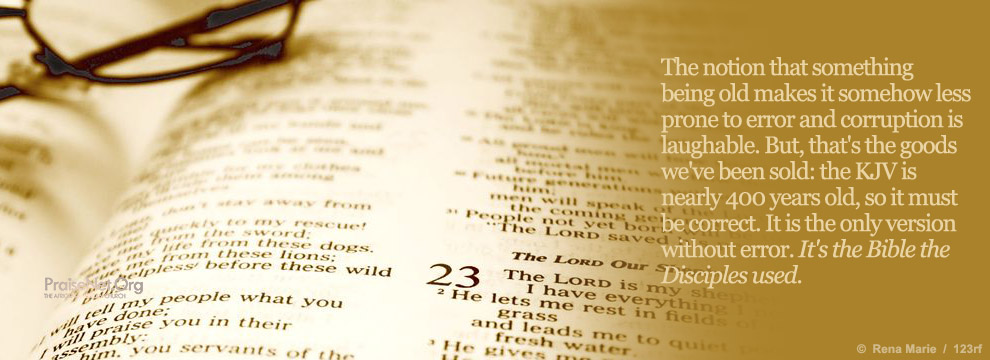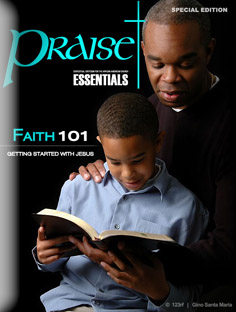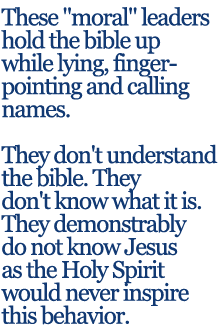The King & I
Is The Bible Reliable?
The version of the New Testament we know today
was canonized by the Catholic Church at the Third Council of Carthage in
397 AD, nearly four centuries after Jesus' death and
resurrection. Four centuries: four centuries of oral tradition
and little pieces of papyrus floating around, being copied over,
stacked in closets, used to prop up wobbly sofas. The potential
for mischief with these documents is inestimable, as there's no
unimpeachable chain of custody for the entirety of the 27 books
of the New Testament. Instead, what we have is the most reliable
guess these men could make: an averaging of hands raised and
votes cast as to the meaning of words both divine and carnal.
From the Synod of Carthage to this modern era, we've seen lots
of bickering over what is and what is not cannon. Revisions,
re-translations, church splits, reformations— lots of men
deciding for you what is and what is not the Word of God. The earliest attempts to assemble the scattered sacred writings and Gospels into some form of a Christian canon, a “New” Testament, may have been 200 CE.
There were and remain seven “disputed” books in the Christian
Canon (The New Testament): Hebrews (once attributed to Paul, but
nobody believes that anymore), James, 2 Peter, 2 and 3 John,
Jude and Revelation. Accredited to St. John The Divine, most
Biblical scholars do not believe, based on its Manuscript
Tradition, “the Disciple whom Jesus loved,” his half-brother
John, actually wrote the Apocalypse from his exile on the isle
of Patmos. There is grave doubt that he wrote 2 and 3 John, or
that he had much to do with The Gospel of John at all, a book a
growing number of Biblical scholars consider to be too
inaccurate and inconsistent with other accounts of Jesus' life
and words to have been anything more than a kindly, poetic and
certainly dynamic and moving fiction.
Of course, it's reasonable to speculate that John, who was
suffering in exile and haunted by visions, might not have been
altogether altogether if he indeed wrote The Revelation, and
Paul typically used scribes to write his letters [Tertius in
Romans (Rom. 16:22), Timothy (2 Cor. 1:1, Col. 1:1)], but I'll
leave such speculation to people who actually know what they're
talking about.
At the Council of Trent (1563), the Catholic Church chose to
endorse these disputed works as deuterocanonical (of, relating
to, or constituting the books of Scripture contained in the New
Testament but not in the Christian canon), including footnotes
and cautions about the reliability of these documents.
No matter how anointed these men (traditionally: all of them,
male) may have been, I think it is fair and reasonable to say
that every single man who ever translated or transcribed the
Holy Scriptures had an opinion. Some opinion, about something.
Most all of them considered their work a holy duty, and the
words they were transcribing to be the Word of God. So, maybe,
we help God out a little, here and there. Fix God's grammar a
bit. Toss in a few verses here and there (Mark 16:9-20).
While there is substantial independent support for much of the
Old Testament, much of which was painstakingly preserved by
dedicated archivists, the New Testament survived over the
centuries in largely oral form. Of the thousands of original
documents preserved over the centuries, almost no two are
exactly alike. Massive problems of writing style, syntax,
grammar and missing or supplemental passages cloud the issue of
what is and what is not canon. In the end, men (no women,
period) had to decide what was and was not authentic. What was
and was not scripture.
They accomplished this primarily through a political system: get
a bunch of experts in a room, send out for pizza and coffee,
pour over the manuscripts, and then vote. By whatever formula or
system, some agreement would be reached, and words translated in
accordance to that system— a system devised and executed by
flesh and bone male-only human beings and subject to the
prejudices, culture and acceptable standards of the times they
were living in. By definition, the handling of the Bible over
the last couple thousand years has been an imperfect and
corruptible process.
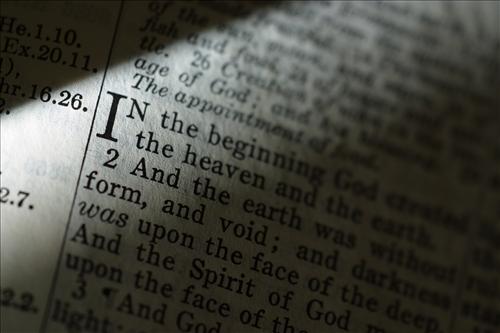
James The First was also James VI, a king of Scotland,
a British protectorate that won their autonomy under Robert The
Bruce, Earl of Carrick and became the first independent kingdom
in Europe (although British kings claimed to be “Lord of
England, Scotland, and France” long after, the claim had no
foundation). James' mother was Mary Queen of Scots who was
deposed by England's Queen Elizabeth in 1567 and executed in
1587 after 19 years in prison. This was a political imprisonment
and murder James raised only token objection to, as he was
determined to ascend the British throne himself. Through
political savvy and guile James ascended the British throne in
1603 after the death of Queen Elizabeth. James' ascension to the
throne formed the foundation for what is now known as the
British Empire by uniting warring tribes of Scotland and then
enjoining the crowns of Scotland and England in 1603. He was the
first to call it Great Britain.
Reportedly a man of faith, James, a Protestant, encouraged the
Church to get the Word of God into the hands of the common man.
In 1536, the Catholic Church burned William Tyndale to death for
distributing the Bible and it was displeased with King James'
authorization of a Bible in English. Roman Catholic Nicolo Molin,
an Ambassador said, “...he is a Protestant...The king tries to
extend his Protestant religion to the whole island. The King is
a bitter enemy of our (Roman Catholic) religion... He frequently
speaks of it in terms of contempt. He is all the harsher because
of this last conspiracy (Gun Powder Plot) against his life... He
understood that the Jesuits had a hand in it.”
King James said this in Basilicon Doron, “Now faith...is
the free gift of God (as Paul sayeth). It must be nourished by
prayer, which is no thing else but a friendly talking to God.
Use oft to pray when ye are quiet, especially in your bed...”
[1]
Commissioned at the Hampton Court Conference of January 14-16,
1604 by King James I, The Holy Bible (as it was titled) was
created in an attempt to create a modern language, sleeker and
more accessible version of the Bible, “An act for the reducing
of diversities of Bibles now extant in the English tongue to one
settled vulgar translated from the original.”
While it is certainly a magnificent and historic document, the
King James Version of the Bible is by no means a perfect,
unaltered record with a verifiable custody chain back to
Apostolic times.
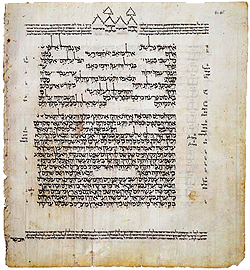
The Masoretic Text
The KJV New Testament is based upon The Received Text
’The Received Text is not a single text. It is a tradition of
printed texts published during the time of the Protestant
Reformation, that is, the 1500's and early 1600's. It includes
the editions of Erasmus, Estienne (Stephens), Beza, and Elzevir.
These texts are closely allied, and are all mostly derived from
Erasmus 1516. They are based upon a small number of late
medieval manuscripts, often called the Byzantine text-type. [6]
The earliest and most reliable Greek manuscripts, such as The
Alexandrian or “Neutral” Text, were not discovered until
seventeen years after the King James Version's debut. Much of
the New Testament was, therefore, translated from whatever
sources were available.
The Byzantine Text is largely regarded as less reliable than the
Alexandrian Text, as the Byzantine Text does not appear to have
existed during the time of the early church, while the Bodmer
Papyri, discovered in the 1950's, lends credence to the
Alexandrian Text having existed as early as 200 AD.
The KJV Old Testament includes translations from The Masoretic Text.
The Masoretic Text is a controversial Hebrew text. The Masoretic
Text is the traditional Hebrew Old Testament text of both
Judaism and Protestantism. The Catholic Church, historically,
used the Latin translation of Jerome based on the Greek LXX.
Masoretic comes from the word “Masora” which usually refers to
the notes printed beside the Hebrew text by Jewish scribes and
scholars. KJV critics and other scholars believe this Hebrew
text has been edited, changed, and in some cases rewritten
entirely by the scribes, known as Masoretes, in an effort to
discredit Christianity. Since the time of the discovery of the
Dead Sea Scrolls, the accuracy of the Masoretic Text, and, by
extension, the KJV, has come under great scrutiny.
CONTINUED

